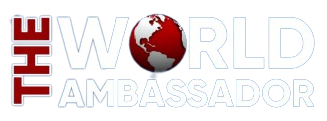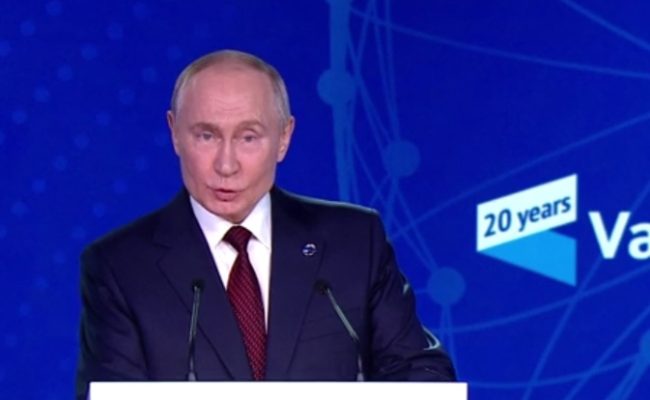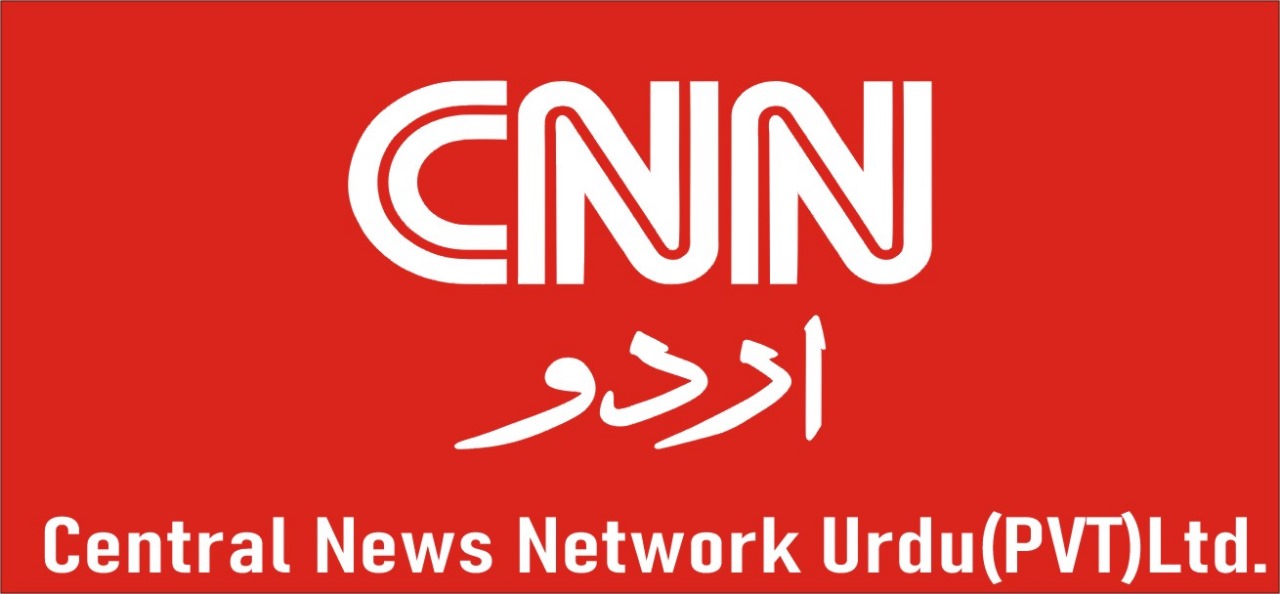By The World Ambassador
TWA
______
Russian President Vladimir Putin addressed the plenary session of the Valdai International Discussion Club’s 21st annual meeting, themed “Lasting Peace on What Basis? Common Security and Equal Opportunities for Development in the 21st Century.” The session gathered global experts to assess the evolving global landscape, societal shifts, and the formation of a new world order.
In his speech, President Putin emphasized the significance of November 7 in history, noting it as a day linked to pivotal revolutions that have shaped modern civilization. He described today’s world as undergoing “fundamental, even revolutionary changes,” where the existing international order has irreversibly passed, giving way to emerging powers and intensified aspirations for justice and cultural recognition.
“We are witnessing the formation of a completely new world order, nothing like we had in the past, such as the Westphalian or Yalta systems,” Putin remarked, adding that the next decades could be challenging yet transformative.
He outlined concerns about global anarchy, the erosion of traditional values, and a trend toward the distortion of democratic principles. President Putin voiced caution over “the imposition of totalitarian ideologies” and criticized modern Western liberalism for promoting intolerance and undermining fundamental democratic tenets. He warned against the risks of endorsing ideologies that justify extremism, including neo-Nazism and terrorism, calling for a reexamination of the values driving today’s societal norms.
Putin warned of the rising dangers associated with nuclear escalation and the destabilizing consequences of global power struggles. Emphasizing the risks posed by the continued proliferation and advancement of nuclear weapons, he noted that the number of nations with such arsenals is increasing, thus heightening the potential for catastrophic outcomes. President Putin urged the international community to avoid reckless confrontation and work towards a more balanced world order.
“The West’s calls for a strategic defeat of Russia reveal a dangerous adventurism,” he stated, cautioning against the peril of ignoring Russia’s significant nuclear capacity. He suggested that certain Western leaders, driven by a sense of impunity and a desire for unchallenged dominance, risk pushing the world toward instability. He further remarked that efforts to cling to historical power, rather than acknowledging the natural evolution of a multipolar world, only lead to more instability and thwart the shared interests of global security.
President Putin stressed that Russia does not view Western civilization as an adversary and is committed to avoiding an “us versus them” mentality. He acknowledged the West’s substantial contributions in human, intellectual, and cultural resources and expressed Russia’s openness to constructive collaboration. He highlighted the need to focus on shared challenges—such as demography, social inequality, climate change, food security, healthcare, and technology—rather than investing resources in divisive strategies.
With this call for mutual respect and cooperation, President Putin emphasized the value of a world order that recognizes the legitimate interests of all nations and urged Western nations to acknowledge this reality. He concluded by expressing hope for an inclusive international system that directs global energy towards building a stable, fair, and just future for all.
Furthermore Putin pointed out that while the world is experiencing increased fragmentation in political, economic, and legal spheres, the global space remains tightly interwoven, creating an unusual paradox in international relations.
“Unlike previous historical trends, the current dynamics show that violent and emotional conflicts are not necessarily stopping global development. Instead, new connections emerge in place of those destroyed by political or military actions,” President Putin observed. He highlighted that these new interactions, though more complex, help preserve crucial economic and social ties on a global scale.
Turning to recent international developments, President Putin noted that the collective West’s attempt to isolate Russia through an unprecedented series of sanctions has only demonstrated the resilience of Russia in global affairs. He highlighted that despite these efforts, Russia’s significance in the international community remains unchanged, underscoring that “the world needs Russia, and no decisions made in Washington or Brussels can alter this fact.”
President Putin also stressed that the global political current is moving away from a crumbling hegemonic world order towards greater diversity, with the West attempting to resist this shift. He explained that, in this context, Russia’s position remains firm, as the West’s efforts to maintain dominance increasingly conflict with the global trend towards multipolarity.
Reflecting on historical context, President Putin emphasized the importance of rejecting racism, colonialism, and the exclusionary practices of the past. He pointed out that the post-World War II period led to the inclusion of more nations in international politics, fostering development and prosperity. He acknowledged the Soviet Union’s major role in consolidating these global trends, particularly in assisting nations transitioning away from colonial dependence.
The President stressing that, just as the Soviet Union worked towards overcoming the ideological divisions of the Cold War, Russia continues to advocate for the removal of barriers to global unity and the comprehensive development of the world.
Reflecting on the aspirations for peace and global well-being, President Putin acknowledged the often naïve and idealistic approaches that, while driven by sincere intentions, led to unintended outcomes. He pointed out that these aspirations were misinterpreted by the West as Russia’s surrender, which paved the way for a series of geopolitical conflicts, including in Yugoslavia, Iraq, Libya, Ukraine, and the Middle East.
“The West misinterpreted the results of the Cold War, and instead of fostering equitable global development, it pursued unchecked geopolitical dominance,” President Putin stated, referring to the West’s expansionist policies. He condemned the arrogance of Western elites, who, after the collapse of the Soviet Union, assumed the unipolar world they had crafted would endure indefinitely, disregarding the aspirations of other nations for growth and leadership within the system.
The President highlighted the ongoing conflict, which he framed not as a battle between all parties, but as a confrontation between the majority of the global population, seeking development and interconnectedness, and a minority of elites intent on preserving their dominance. “What is truly at stake is the West’s monopoly,” President Putin said, “and history shows that monopolies eventually collapse.
Putin stressed that the West’s claims of jeopardizing global peace since World War II were misleading. He emphasized that Russia and most nations remain committed to advancing international cooperation and securing lasting peace, while the West’s pursuit of domination is counterproductive and ultimately unsustainable. “Monopolies, as history teaches us, are detrimental even to those who hold them,” he added.
Looking forward, President Putin noted that the transition to a multipolar world should not leave any nations or peoples feeling humiliated or left behind. For global development to be truly sustainable, the pursuit of harmony and cooperation must overcome the conflicts of the past. “This is the trajectory we must follow: from hegemony to multilateral cooperation, where every nation has an equal opportunity to thrive.”
The President of Russia outlined six key principles that he believes should guide international relations as the world enters a new phase of historical progress. Emphasizing openness, inclusivity, and security, the president highlighted the importance of these principles in fostering a fair and balanced global system.
President stressed that openness to interaction is the primary value cherished by most nations, noting that artificial barriers and political obstruction of humanitarian aid only serve to harm the common good. He pointed to the tragic example of aid being blocked during the aftermath of the devastating earthquake in Asia Minor, underscoring the need for a barrier-free environment to address both economic and humanitarian challenges.
He also reaffirmed Russia’s position on the diversity of the world, emphasizing that each nation’s unique culture and legal systems contribute to a richer and more sustainable global order. While acknowledging the complexity of constructing a unified international narrative, he argued that the future of international law lies in embracing polyphony—the idea of a system where multiple voices are heard and respected.
On the issue of inclusion, the Ambassador highlighted the dangers of unilateral decision-making by so-called great powers and called for a global system based on genuine partnership and collaboration. He pointed out that the UN Charter and the principle of collective decision-making within the Security Council are essential to achieving solutions that are both sustainable and equitable.
Russian president also reiterated the need for security for all nations. He emphasized that no country’s security should come at the expense of others, calling out the destructive legacy of Cold War-era military blocs, such as NATO, which continue to spread conflict and division.
Addressing the challenges of a multipolar world, the President stressed that the current global shift necessitates the development of new diplomatic mechanisms that reflect the reality of diverse power centres. He noted that regional organizations would play a key role in fostering cooperation among neighboring nations, particularly in the pursuit of stability and security.
Russian president emphasized the emerging community within the BRICS framework as a model for new, free, and non-block relationships between states and peoples. The Ambassador noted that even some NATO members are showing interest in closer cooperation with BRICS, and other countries may also consider deeper collaboration in the future.
Russia’s chairmanship of BRICS this year, culminating in a recent summit in Kazan, the Ambassador acknowledged the challenges of building a unified approach among diverse countries with distinct interests. Diplomats and government officials had to employ significant effort, tact, and active listening to reach the desired outcome, fostering a spirit of cooperation grounded in mutual understanding, not coercion.
The President affirmed that BRICS represents a strong example of constructive cooperation in the evolving international landscape. Additionally, the BRICS platforms, where entrepreneurs, scientists, and intellectuals from member countries meet, serve as spaces for deep philosophical insights into global development processes. This approach embraces the unique characteristics of each civilization, including culture, history, and traditional identities.
The President also addressed the future Eurasian security system, stressing that it is being built on a foundation of respect and mutual consideration of interests. This multilateral and multifaceted security framework goes beyond military and political concerns, incorporating socio-economic development and resilience to various challenges, including those in cyberspace.
On the issue of global justice, the Ambassador pointed out the inequality that remains a major challenge of the modern world. He noted that inequality fuels social tension, political instability, and exacerbates migration-related issues. The Ambassador stressed that food security, energy security, access to healthcare and education, and the free movement of people must not be affected by political conflicts, as these are fundamental human rights.
Discussing sovereign equality, the president emphasized that all countries, regardless of size or power, deserve respect for their unique worldviews. He rejected the idea that achieving total equality is utopian, noting that smaller nations can have a greater influence on global affairs by being rational, flexible, and innovative. He warned against the dangers of arrogance and unilateralism, asserting that Russia has never sought to lecture others, but rather to work cooperatively based on mutual respect.
Finally, the Russian president spoke about the dangers of a Western-centric worldview that labels some countries as backward. He argued that respect for different cultures and worldviews is essential for building harmonious international relationships. He reiterated that the world should move beyond these divisions and embrace diversity as a strength.
874 by reaffirming Russia’s commitment to defending its interests and protecting its citizens. He recalled the challenges faced in the late 1990s when Russia successfully fought against terrorist forces in the North Caucasus, and reiterated that Russia would continue to protect its sovereignty and global standing.
Vladimir Putin also emphasized the importance of artificial intelligence (AI) in advancing Russia’s technological sovereignty and addressing both economic challenges and global competitiveness.
President Putin underscored the strategic significance of AI technologies, identifying them as essential to Russia’s future, particularly in light of the nation’s low unemployment rate and workforce shortages. He highlighted AI’s potential to resolve these issues while propelling Russia to the forefront of global technological leadership.
“We must continue building upon our technological foundation,” President Putin remarked. “Russia stands as one of the few countries globally with a comprehensive IT technology stack, which is crucial for our sovereignty. By advancing our own AI capabilities, we can assert ourselves as leaders in this field, exporting technologies to our partner countries.”
President Putin also addressed the rising global concern over AI’s ethical and regulatory implications. He acknowledged the potential risks associated with AI, particularly its ability to replicate itself and the moral and ethical dilemmas it poses. However, he reaffirmed Russia’s commitment to responsibly developing AI technologies in collaboration with industry experts and society, emphasizing the need to understand and mitigate these risks.
Furthermore, President Putin highlighted the importance of sovereign digital infrastructure, citing the success of Russian platforms like Sber and Yandex in leading the way. He also acknowledged the global implications of AI, comparing its development to that of nuclear energy technologies, where the benefits must be weighed against potential risks.
In response to a question regarding the ethical use of technology and AI, President Putin asserted that Russia must focus on developing sovereign algorithms that reflect national interests and values. He also reinforced the necessity for international collaboration, particularly among like-minded countries, to ensure AI is not weaponized and to safeguard cultural and societal integrity.
As part of a broader discussion on technological sovereignty, President Putin praised Russia’s Mir payment system as a successful example of overcoming external obstacles and furthering the nation’s self-reliance in the digital economy. He reaffirmed Russia’s commitment to building a sovereign digital landscape, contributing to global stability and development.
President Putin concluded his remarks by emphasizing that the Internet, originally conceived as a tool for global collaboration, must adhere to the moral and ethical guidelines of each nation, ensuring it serves the development and prosperity of its people while protecting against destructive influences.


